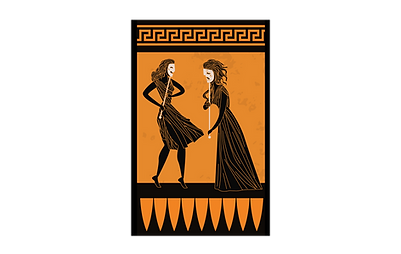
Synopsis
Playwright, nerd, and aging hip-hop enthusiast Barrett Ryder has 99 problems, and a script is one.
At home, his wife and former collaborator Cally is dying. He has health issues of his own. Meanwhile, after 20 years, their dream, a hip-hopera based on Homer’s Odyssey (“The O.G. and the Aegean,”) is finally in production…but Ryder cannot stop rewriting.
Tensions skyrocket when a venal producer miscasts a young stage phenom, Tru, in the lead role of the matronly Penelope. Olivia, the original female lead, schemes to take back the role, creating backstage chaos; Art, who plays a suitor, tries to kindle a “showmance” with the unstable Tru (who, having acted since early childhood, has a shaky identity of her own). And “on stage,” the funny, densely rhymed numbers in “O.G.” explore the quasi-theatrical relationship between Odysseus, a charismatic, narcissistic, and greed-driven leader, and his family and followers.
His power depends on his ability to control his narrative… a requirement made easier by the untimely death of every single member of his crew. The tensions of Ryder’s domestic life, his own health, the cast rehearsing “O.G.,” and the needs of the play reflect and build, finally culminating in a heart attack that lands Ryder in the hospital.
Ryder awakens, still groggy, witnessing in real time the answer to the question of how “O.G.” must end. The larger play ends with Ryder’s realization that wife Cally has long ago passed away, and that the competing Penelopes of the play were images he held onto and rewrote as he told and retold his story to himself to avoid moving on. The audience is left with Dream’s (and “O.G.’s”) persistent and final query, “Odysseus…is he us?”
She has more plots than Forest Lawn
—Tru, describing Olivia
After Every Dream follows three intertwined plots:
-
The central (and always evolving) show-under-construction, "The O.G. and The Aegean,"
-
The backstage rivalry between cast members Tru and Olivia, which grows to involve much of the cast and creative team, and
-
The personal life of the playwright
They're intended to engage and delight at any level of familiarity with the Odyssey, and crafted to reward the deeply immersed audience member up to and over the border of obsession.
